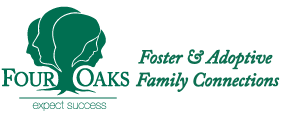If your relative has been or may be removed from their home and you are hoping to care for him or her, you should speak with the child’s HHS caseworker. Before you begin the process to get a foster care license or adoption approval, it’s important to know if you will be considered a placement option for the child. When there are many relatives interested in caring for a child, not all are considered for placement.
Sometimes HHS can request a relative home study, which means you are not required to complete training and will not become a licensed foster home. As a non-licensed relative, you are able to provide care for your relative but will not receive foster care maintenance payments.
Or, HHS may want you to go through the process of becoming a licensed foster or approved adoptive home before they consider you as a placement option. The path you take can be determined by the child’s permanency plan. To decide what’s best for your family, ask the following questions.
Will your relative be in care for a short time?
There are situations where care may be needed very temporarily. If the plan is for you to care for your relative for just a few weeks or months, it may not be beneficial to get a home study completed. The process to become a licensed or approved family can take six to nine months. Many times relatives do not complete the process because the child has returned home.
Will your relative be in care for a long time?
If your relative will be living with you for a longer time or if you’re not sure how long he or she will need care, there are advantages to getting a foster care license:
- The training and support you will receive as a foster parent. NTDC training, a 11-week series of classes, will help you learn about parenting a relative’s child. Parenting a relative’s child can be even more challenging than a foster child.
- The financial support for foster parents. When you are a licensed foster home (whether you are caring for a relative or not), you will receive foster care maintenance payments like other foster parents. You will also be assigned a support specialist who can help you manage the child’s behaviors and get you connected with services and other supports as needed.
Ready to get started?
Do you want to be a permanent option for the child?
Reunification for children is always the goal, but if the parent’s rights may be or have been terminated, getting a foster care license and adoption approval is recommended. In Iowa, only a HHS approved adoptive family can legally adopt a child in the foster care system, even if you are a relative.
An adoption approval is different from a foster care license. You can get an adoption approval without a foster care license, or the other way around. Families must attend the same training, complete a home study, and be issued a notice of decision by HHS before they are legally “approved” to adopt. Having an adoption approval for the relatives in your care means you can adopt if that becomes an option. You will not receive monthly foster care maintenance payments if you only have an adoption approval, but you will have support from Four Oaks Foster and Adoptive Family Connections.
